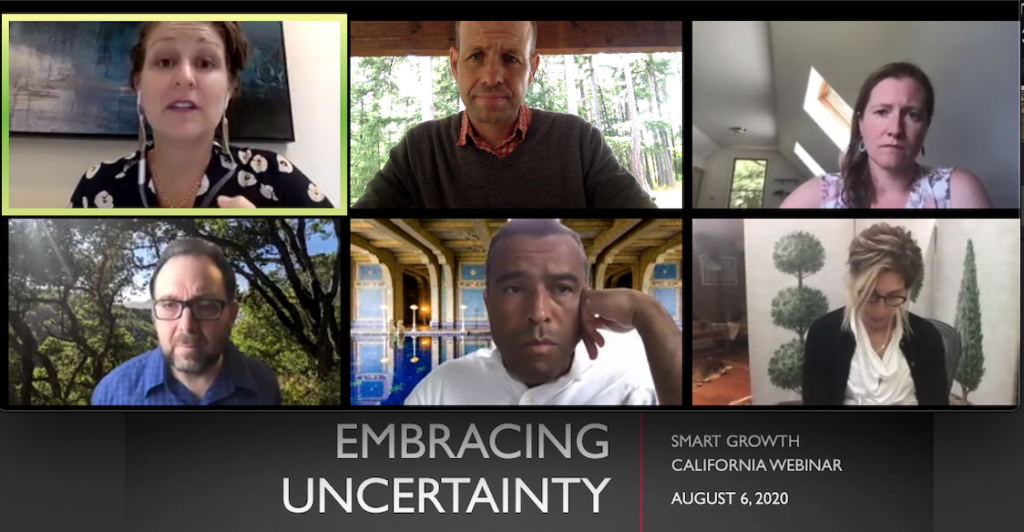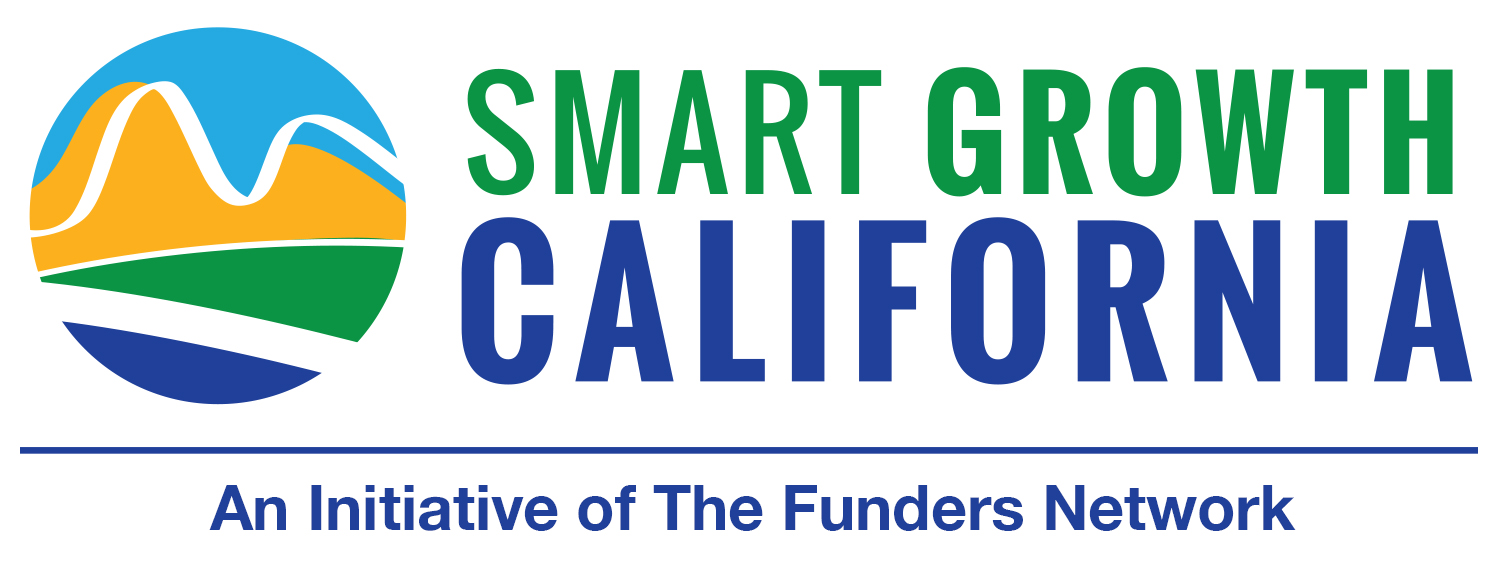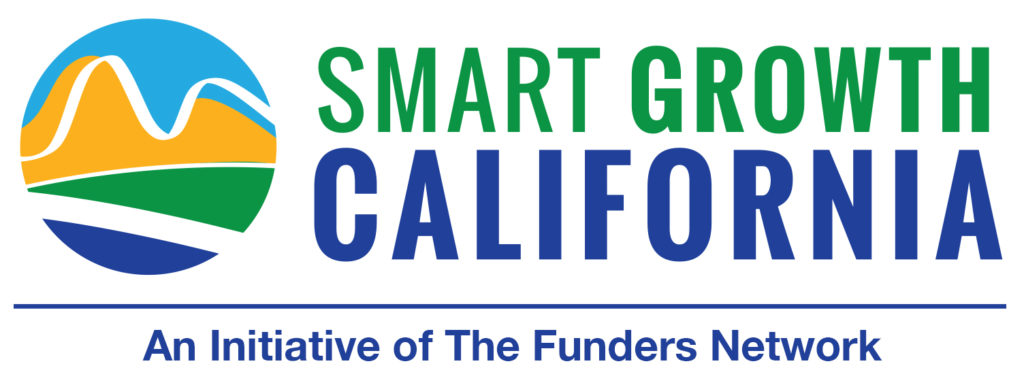2020 has been a year for the history books, and has left us all feeling at times overwhelmed, other times inspired, other times fearful for the future or exhausted with the present. Having a community of like-minded funders during this year has been key to finding a way forward, and together at Smart Growth California we have continued to learn together and share together about how to best continue making an impact in a fast-changing environment. To keep up with the rapidly changing landscape of this year, Smart Growth California has had a busy summer season. Going virtual has allowed us to increase our programming, both within our working groups and webinars. We are “flexing” in a new way to try and bring you thought-provoking and inspiring information to help you navigate these new, churning waters that we all find ourselves in.
Here is a breakdown of our virtual funder learning sessions this summer.
Building Wildfire Resiliency in the West Virtual Series
In partnership with Philanthropy CA, Gordon and Betty Moore Foundation, Hewlett Foundation and Resources Legacy Fund, our six-part Building Wildfire Resilience in the West series explored the causes of catastrophic wildfire, its compound impacts on issues like public health, equity, water, and climate change, and emerging solutions for saving lives, property, and natural resources.
Experts in tribal leadership, academia, government and nonprofits echoed a strong and consistent emphasis on the interplay of climate change and the region’s poor fire management practices that have led us to the state of devastating megafire that we are in, and focused on the ways that wildfire disproportionately impacts low-income and communities of color. Speakers focused on how intertwined many issues are with wildfire – water quality, public health, and environmental conservation, to name a few – and that solutions must address this interplay. Far from staying put on the problem, the series highlighted proven solutions that philanthropy can support, from the integration of climate action/resilience planning, support of indigenous cultural burning practices, to innovative tech solutions.
In an ugly twist, only days after the series ended, the first round of major wildfires broke out across the state, which as of this writing on September 29th has led to over 4 million acres burned. While philanthropy is responding quickly with emergency assistance, the last several years have taught us that these megafires are now the norm and not an exception, and in addition to emergency funding, long-term solutions must be supported (see resources page at Philanthropy CA, linked below). If you are interested in going deeper with other funders to explore how you might fund in this space, reach out to SGC Program Manager Kerry Hastings at kerry@fundersnetwork.org.
For recordings, session summaries and more information, check out the resources page at Philanthropy CA.
Embracing Uncertainty
If you are feeling a bit of vertigo from the last year, you are not alone. Our August 6th webinar wrestled with the reality that what we do not know in this moment—the uncertainties that keep many of us up at night — is far greater than that which we believe to be certain. How do philanthropy and practitioners navigate and strategize when so much about the future is unknown? This session was grounded in a thought-provoking paper, Reimagining Philanthropy in the Age of the Virus, written by Smart Growth California steering committee member Mark Valentine.

Our excellent set of speakers explored how we can all approach this moment with a lens of analysis and action. Some themes and topics covered included:
- We ought to question the suggestion that this moment is unprecedented, or that what we are seeing is “new.” Former UN Special Rapporteur on Housing Leilani Farha reminded us that many of the emergency measures taken to protect communities (e.g. eviction moratorium) were actually addressing issues that were crises long before COVID (renter instability). How do we push government to have the kind of courage for bold policy-making to address the challenges that face us in an ongoing way?
- Most of the innovative work to respond to the crisis and rethink systems and communities is happening at the city level, and yet cities have deeply flawed funding structures and limited budgets, so “big ideas” stay small and are unsustainable. Oakland SPUR Director Robert Ogilvie hopes we can use this moment to grow local public sector capacity in a way that it will work for the public more than corporations. How can philanthropy play a role? Fund organizing that allows communities to fundamentally rethink their relationship to local government and implements lasting governmental reforms.
- COVID has illustrated how vulnerable the systems are that we live in (globally to locally), and we know that more and more challenges still lie ahead. Omega Resilience Funder Network’s Shorey Myers says, “We are at a point in history where we have moved from a moment of normalcy interspersed with crises, to one of near constant crises, and normality as we’ve previously understood it is no longer the case…we live in California where we know there will be fires, public safety shutoffs, etc. How can we use this moment not just to respond to COVID but reenvision and reconceptualize our economic system?”
If you’re interested in listening to recording of any of this conversation, please contact Ron Milam.
Representation Matters
The San Joaquin Valley is a place of great opportunity and importance in the state, and local nonprofits have been steadily building power in the region to reimagine the future of the Valley. The pandemic has hit the Valley hard, and yet NGOs continue the hard work of organizing communities around issues that will only be worsened by the deepening disparities that the pandemic has created.
In 2019, the San Joaquin Valley Funders’ Collaborative launched a $4.2 million 3-year funding initiative – The Power, Equity and Clean Water Collective – to equip local nonprofits to build lasting power and community leadership through working on water issues. Funders and partners dug into the complex and sometimes challenging waters of navigating how funder collaboratives can center partners voices in shaping the priorities and strategies for a pooled fund, while not over-taxing partners (the key = constant feedback loops and ensuring partners are compensated for their time!). Participants also discussed how to ensure that a time-sensitive fund is built to support lasting power and a resilient community and that organizations that are a part of this cohort are set up to be successful beyond this initiative.
To listen to the webinar recording, learn more about this initiative or to get involved with the San Joaquin Valley Funders’ Collaborative, please contact Kerry Hastings, Program Manager at Smart Growth California.
To check out upcoming Smart Growth California gatherings, check out our events page.

